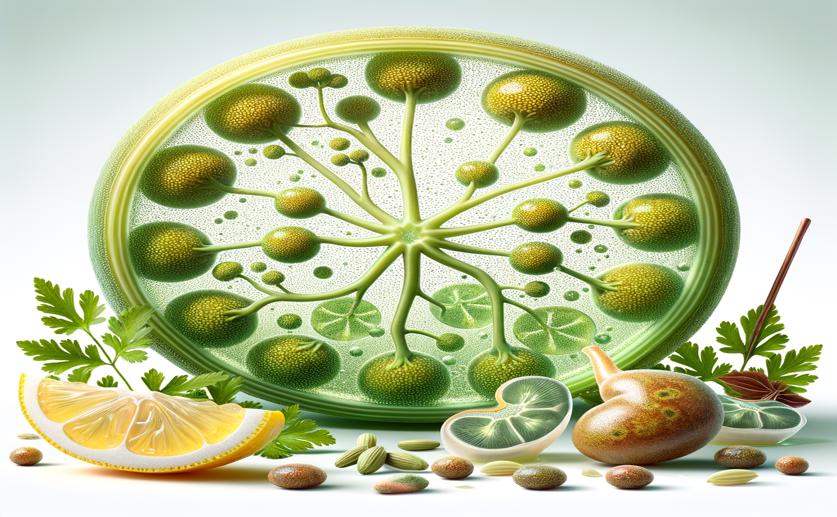
Lemongrass and Parsley Seed Nanogel: A Remedy for Kidney Stones
Greg Howard
3rd April, 2024

Image Source: Natural Science News, 2024
Key Findings
- Study shows plant extracts may help treat kidney stones by reducing stone-promoting substances
- Nanogel form of plant extract treatment is more effective than regular emulsion
- Findings suggest a natural, potentially cost-effective approach to managing kidney stones
References
Main Study
1) Cymbopogon proximus and Petroselinum crispum seed ethanolic extract/Gum Arabic nanogel emulsion: Preventing ethylene glycol and ammonium chloride-induced urolithiasis in rats.
Published 2nd April, 2024
Journal: Urolithiasis
Issue: Vol 52, Issue 1, Apr 2024
Related Studies
2) Etiopathogenic factors of urolithiasis.
Journal: Archivos espanoles de urologia, Issue: Vol 74, Issue 1, Jan 2021
3) Antiurolithic effects of medicinal plants: results of in vivo studies in rat models of calcium oxalate nephrolithiasis-a systematic review.
4) In vivo investigation of the inhibitory effect of Peganum harmala L. and its major alkaloids on ethylene glycol-induced urolithiasis in rats.



 4th March, 2024 | Jenn Hoskins
4th March, 2024 | Jenn Hoskins